AI Agents Vs Agentic AI!
Well, the AI Agents is reactive; however, the Agentic AI is proactive.
Another difference?
An AI Agents has a limited function, and Agentic AI can evolve its functions to make it count in this devastating market.
With evolving AI, we can all view a distinction between such platforms; however, when it comes to building one as an entrepreneur or an investor, learning about the difference in-depth becomes the prime need.
As artificial intelligence continues to evolve, so do the terms surrounding it, and not all of them mean the same thing.
Do you want to know the real difference between AI Agents and Agentic AI before investing in or building the next-gen product?
You're not alone; many confuse the two.
“We’re defining agentic AI as systems that can plan autonomously and take actions to meet goals.”
— Tom Coshow, Senior Director Analyst at Gartner
Understanding where AI Agent stops and Agentic AI begins isn’t just academic—it’s essential.
Let’s break down what separates these two and why it matters for innovators like you.
Key Takeaways:
AI Agents vs Agentic AI: Agentic AI delivers autonomy, real-time decision-making, and adaptive workflows—giving businesses a competitive edge in fintech, education, healthcare, and logistics.
Choosing the right AI type impacts your scalability—AI Agents scale fast but hit limits; Agentic AI grows with your user needs and behavior over time.
Businesses using Agentic AI report higher engagement and smarter automation, improving retention and user satisfaction through personalized, context-aware experiences.
Before investing, evaluate your task complexity, autonomy needs, and data flow—this ensures you don’t overbuild or underdeliver on your AI roadmap.
JPLoft helps businesses build powerful AI Agents and Agentic AI solutions, tailored to real-world use cases across fintech, healthcare, education, and on-demand services.
What are AI Agents?
AI Agents is a task-specific system that performs actions based on user input or predefined rules.
-
Functions: Sets its own goals, adapts strategies, and learns from outcomes autonomously.
-
Types: Goal-driven intelligent agents (e.g., AI tutors, autonomous research systems).
-
Use Cases: Personalized education, self-evolving learning apps, autonomous task planning.
-
Focus: Long-term learning, proactive behavior, and continuous adaptation.
-
Autonomy: High; acts independently without external prompts.
-
Characteristics: Context-aware, self-directed, decision-making, goal-oriented, reflective.
You can create an AI agent by including effective strategies and steps that can drive your users to engage with the platform enormously.
What is Agentic AI?
Agentic AI is an autonomous system that sets its own goals, makes decisions, and adapts behavior over time.
-
Functions: Executes predefined tasks based on commands or user input.
-
Types: Chatbots, voice assistants, and rule-based automation tools.
-
Use Cases: Customer support, reminders, scheduling, product suggestions.
-
Focus: Task efficiency, immediate response, predefined outcomes.
-
Autonomy: Low to moderate; dependent on instructions or triggers.
-
Characteristics: Reactive, instruction-based, narrow-function, predictable, and limited learning.
Key Differences Between AI Agents and Agentic AI
Learning about the differences can even help convert your top AI Agents' project ideas into success.
Well, evaluating the difference between the AI Agents and agentic AI can be simple when it is represented in easy terms.
Hence, let’s learn about them all in this section.
1. Autonomy and Decision-Making
When it comes to evaluating AI Agents Vs. Agentic AI, autonomy in AI Agents is all about operating without any constant human input, yet within the predefined boundaries or goals. The AI Agents work independently, yet still follow the crucial instructions it's been given.
However, when it comes to the autonomy in agentic AI, this refers to the system that can set its subgoals and can decide how to effectively achieve them. This agentic AI adopts the strategy without any requirement for any step-by-step human direction.
2. Learning and Complexity Gap
The difference between the AI Agents and agentic AI can be evaluated as AI Agents operate in a very simple manner with clear rules and goals. Along with this, the AI Agents handle one task at a time with limited contextual understanding. These agents do not improve over time until it is restrained by the developers.
Although when it comes to agentic AI, you can manage multi-step tasks, adapt to the changing environment, and even reduce the conflicts among the subgoals. Here, the AI Agents regularly learns from the interactions. Additionally, the agentic AI optimizes the strategies and will adjust as per the changing environments.
3. Goal Handling in Both Cases
The goal-based AI agents are designed to achieve the specific objectives through planning, execution, and adopting actions that are based on the predefined goals. Additionally, the AI agents followed the step-by-step instructions, although they AI agents do not set their objectives.
However, the agentic AI in goal handling can break down a broad objective into smaller subgoals on its own, adjusting them dynamically as it progresses. Along with this, the agentic AI can re-evaluate its complete goal strategy and even generative alternative paths.
4. Memory and Context Retention
The AI Agents operates with limited or no memory. Here, every task is often isolated from the previous one. Memory and context retention element in the AI Agent retains and recalls information, assisting the users to learn from the past interactions.
Although when it comes to comparing Agentic AI Vs Agent AI, Agentic AI does leverage the memory and context retention for significantly enhancing the capabilities, as well as moving beyond the simple, stateless interactions towards more sophisticated and personalized experiences.
5. Context Awareness
While comparing AI Agents and agentic AI, the context awareness is limited; the AI Agents has no memory of past interactions. The AI agents utilize the memory and context retention for enhancing performance, personalizing interactions, and enabling continuous learning.
However, the agentic AI does maintain memory, reflect, and adapt strategies over time. Additionally, this AI can help interpret what the user is building, why they are building it, and how each element connects with the platform.
6. Self-Evaluation and Feedback Loops
Self-evaluation in AI agents refers to the type of ability of an AI system to assess its performance, identify the top ideas for enhancements, and potentially refine the complete actions or outputs. Along with this, the feedback loops in the Agent's AI can be helpful for continuous learning and improvement. Although when it's unable to reflect, these platforms do fail.
However, when it comes to the use of agentic AI, the platform can evaluate the user’s behavior and then improve itself accordingly. This platform monitors how well the platform is performing, and if the selected path is not able to work, agentic AI is capable of making strategic changes.
7. Task Chaining
One of the differences between the Agentic AI Vs AI Agents is capable of performing one task at a time. It does comprise breaking down the complex issues into smaller ones. Here, you can note a limitation in this concept, as something breaks in mid-chains or the sequence changes, it usually fails or requires human reprogramming.
However, when it comes to the use of task chaining in agentic AI, it plans and modifies the tasks on its own. Along with this, the platform understands dependencies among the tasks and adjusts them dynamically. This further helps the users to improve their understanding using the task chaining option.
8. Initiative
Another difference to note as we compare AI Agents vs. Agentic AI is the ability to take initiative. AI Agents wait for the inputs from the users and then provide the information accordingly. It is one of the important platforms. Here, the motto of the AI Agent is not to take any initiative, but to execute the input that is being given by the users.
Although in comparison to an AI Agents, agentic AI is capable of taking the initiative by itself. This platform recognizes when the task needs to be done and then further acts accordingly. Furthermore, agentic AI is capable of scanning for inefficiencies, anticipating issues, and further identifying next steps, as well as acting accordingly.
Well, after learning all these differences in detail, let's summarize them all in a short summary in the table given below.
|
Aspect |
AI Agents |
Agentic AI |
|
Definition |
AI that performs tasks as instructed |
AI that exhibits autonomy, initiative, and decision-making |
|
Goal Origin |
Follows user-defined or system-defined goals |
Can define or refine its own goals based on context |
|
Decision Making |
Reactive; based on given input or prompts |
Proactive; evaluates, plans, and adjusts based on feedback |
|
Level of Autonomy |
Low to moderate |
High |
|
Example Use Case |
Chatbots, recommendation engines, voice assistants |
AI research assistants, multi-step autonomous agents, and advanced copilots |
|
Learning Behavior |
Learns when prompted or updated |
Learns and adapts continuously, even mid-task |
|
Context Awareness |
Limited to current input |
Maintains memory, reflects, adapts strategies over time |
|
Initiative |
Waits for instructions |
Can initiate actions based on observed needs or gaps |
|
Complexity |
Simpler logic and workflows |
Involves planning, reasoning, and execution chains |
|
Tech Stack Examples |
Rule-based systems, basic LLM integrations |
Advanced LLMs with memory, planning (e.g., Auto-GPT, OpenAI's Superalignment AI) |
Now, as we have discussed in depth the differences, let’s consider the real-world case scenarios in the following section.
If you are the one trying to create an AI app, then connecting with the leading AI app development company can be helpful.
Real World Use Cases of AI Agents and Agentic AI
With the help of understanding the present use cases related to AI Agents and agentic AI, you will be able to invest in the same.
Hence, let’s evaluate the current real-world scenarios of using AI Agents and Agentic AI in the present section.
1] Salon and Beauty
The use of AI Agents assists users in booking appointments, answering service-related FAQs, and is useful for sending promotional offers via automation. AI in Salon apps helps in analyzing the past behavior of users and then providing assistance accordingly.
However, the agentic AI in the salon and beauty industry does help to monitor the user history, predict when they are due for a revisit, help to suggest personalized beauty packages, and further help to reschedule the appointments in case of no-show.
2] Fintech Industry
The use of an AI Agents does help users to analyze the user’s behavior and then provide them the accurate and useful recommendations. This is even helpful for fraud detection, credit scoring, algorithmic trading, and chat-based customer support.
However, the integration of agentic AI will ensure regulatory compliance by automatically maintaining the detailed audit trails. AI in a fintech app can help enhance the present experience by providing seamless payment options.
3] Handyman Services
The AI Agents helps handle the booking requests, and can assign workers based on zip codes. The AI in handyman apps through handling customer interactions, scheduling, and can even provide initial troubleshooting.
Although the implementation of agentic AI acts as a smart personal assistant, it helps to handle appointment scheduling, reminds users of upcoming tasks, and is even helpful to suggest workflows.
4] Retail and Manufacturing App
AI agents offer significant benefits in both the retail and manufacturing sectors through automating tasks, optimizing processes, and helping to enhance decision-making. Additionally, when it comes to AI in eCommerce businesses, it helps in enhancing personalization, as well as enhancing customer experiences.
Agentic AI in eCommerce does help in providing autonomous and personalized shopping experiences through enhancing operational efficiency and customer experiences.
5] Healthcare App
AI Agents, well, in this sector, enable personalized care, even helping to provide diagnostic support. AI in healthcare apps do assists in offering a wide range of benefits, including enhancing diagnosis, personalized treatment plans, and through streamlining the healthcare operations.
When it comes to agentic AI, it assists the users in interpreting the medical reports, x-rays, and charts and then provides the users, an accurate analysis. It is even helpful in providing recommendations to the users related to doctors, whom they can connect with automatically.
Well, now let’s examine the given table to summarize the overall real-world case study scenarios.
|
Use Case |
How AI Agents Work |
Industry Examples |
|
Customer Support Chatbots |
Responds to FAQs, resolves tickets using pre-trained responses or rules. |
Salon: Handles service-related FAQs and booking support. Fuel Delivery: Confirms delivery slots or order status. eWallet: Answers balance or refund queries. |
|
Recommendation Systems |
Suggests products or content based on user history, but doesn’t plan beyond that. |
Fantasy Sports: Recommends team lineups based on player stats. Salon: Suggests beauty treatments based on past visits. eCommerce: Upsells similar products. |
|
Voice Assistants (e.g., Alexa, Siri) |
Executes single commands like setting alarms or playing music. |
Handyman: Allows voice-enabled job tracking or bookings. eWallet: Checks balance or sends money with a command. |
|
Autonomous Vehicles (Basic Level) |
Follows mapped routes and responds to traffic signals based on fixed models. |
Fuel Delivery: Drives fixed routes for deliveries. Logistics/Fintech: Route-based cash pickup vehicles or mobile ATM vans with GPS navigation. |
|
Email Sorting & Spam Filters |
Categorizes or blocks emails based on learned patterns. |
Salon: Sorts booking confirmations, promotions, or reviews. Fintech: Filters transaction alerts, KYC docs, and marketing emails. |
Well, are you ready to build your own AI Agents and agentic AI, but are confused about which one to proceed with?
Then the following section can help.
Which One Should You Build: AI Agents or Agentic AI
One of the dilemmas which may be bugging you is "which one to build, either it is AI Agents or Agentic AI.
Let's analyze this in this section.
1. Task Complexity
AI Agents are the way to go if tasks are repetitive, rule-based, or don't need multi-step logic (e.g., booking, answering FAQs).
Select Agentic AI where work includes planning, adjustment, or learning in the long term (such as workflow automation, business strategy AI).
2. Autonomy Requirement
An AI Agents is best when you need strict control, and the AI does nothing except on being instructed.
Agentic AI is more appropriate for situations where the system has to initiate itself, correct itself, and act without constant human intervention.
3. Development Time & Cost
An AI Agents is quicker and less expensive to develop and keep.
Agentic AI takes more sophisticated infrastructure (planning, memory, learning loops) — more expensive but longer-term value.
4. Industry Use Case
AI Agent suits industries such as beauty, food delivery, or customer support, where jobs are transactional.
Agentic AI works better for fintech, learning, logistics, or productivity apps, where objectives change and activities need to adapt in real-time.
5. User Experience Expectations
An AI Agents is fine for simple interactions, but could come across as limited or stilted.
Agentic AI can provide a smarter, assistant-oriented experience that is intuitive and feels personalized.
6. Data Availability
An AI Agents operates with static data or low context.
Agentic AI flourishes when it has access to real-time user data, history, preferences, and external cues.
Swift Rule of Thumb:
If your AI must do so, use AI Agents.
If it must think, learn, and evolve, Agentic AI will be optimal.
Till now, we have discussed the rule of AI Agents Vs agentic AI, its difference, and how to select one.
Now, let’s learn about the technical and ethical considerations in both platforms in the proceeding section.
Technical and Ethical Considerations
Learning about the regulations and compliance can help you align with societal values, operate transparently, and avoid any kind of bias in the network.
Hence, let’s evaluate the technical and ethical considerations below.
► Ethical Issues
-
Transparency
Users need to be aware when they're dealing with AI, what the AI does with their information, and how it makes decisions. Black-box behavior is dangerous, particularly in Agentic AI.
-
Bias & Fairness
AI that's been trained on biased data will replicate — or even accentuate — those biases. This is especially important in sectors such as fintech, healthcare, or recruitment platforms.
Action: Data-source audit, outputs monitoring, and retraining when indicated.
-
Accountability
With Agentic AI self-deciding, who's accountable if it goes awry?
Define strict human-in-the-loop mechanisms or override controls at all times.
-
Privacy & Data Use
Particularly for Agentic AI, with memory and context retention — ensure it obeys GDPR, HIPAA, or industry-specific regulations.
Encrypt data, anonymize where feasible, and obtain explicit user consent.
-
Autonomy Limits
Agentic AI having the capability to act autonomously doesn't imply it will always do so.
You’ll need to set safe boundaries to prevent unexpected or harmful actions.
Other than the ethical considerations, if you want to evaluate the AI Agents Vs Agentic AI differences, along with considering learning.
► Learning Considerations
Type of Learning Needed
An AI Agents might only need static training or prompt tuning.
Agentic AI often requires reinforcement learning, memory modules, and real-time adaptation.
-
Data Quality & Volume
The smarter the AI, the more reliable and diverse the training data needs to be.
Garbage in = garbage out — and that becomes riskier when your system takes initiative.
-
Feedback Loops
Agentic AI systems must learn while doing.
You’ll need to design feedback mechanisms that reward the right behaviors and correct mistakes — without human labeling every time.
-
Context Retention & Forgetting
Retaining context improves performance.
But over-retention can cause privacy leaks or outdated assumptions.
Action: Decide what the agent remembers, for how long, and what it forgets.
-
Generalization vs Overfitting
Your agent must adapt across situations without locking into a narrow behavioral pattern.
Action: Regular evaluation on diverse tasks is key.
Ready to Build an Agentic or AI Agents? JPLoft Has You Covered.
Are you the one searching for a company to build an AI Agents or Agentic AI?
No worries.
JPLoft is who you should connect with. Our team of developers can help you connect with you and your ideas and then convert them into reality.
We are the leading AI Agent development company and also have specialization in creating agentic AI. Our team can help you identify the market gap, evaluate the existing competition, and then convert these scenarios into practical solutions.
Our team understands the behavior of the industry and uses advanced technologies to build your dream platforms.
Conclusion
Choosing between AI Agents and Agentic AI comes down to understanding your project's complexity, autonomy needs, and how much adaptability the system requires.
AI Agents works best for structured, single-purpose tasks, while Agentic AI thrives in dynamic, multi-step environments where learning and initiative matter. Industries like fintech, healthcare, salon, and logistics are already seeing the benefits of both, depending on the use case.
As AI evolves, so does the demand for systems that can think, plan, and act intelligently. Whether you're automating workflows or building full-scale decision-making systems, choosing the right type of AI is critical to long-term success.
FAQs
AI Agents performs tasks based on direct instructions and fixed logic, while Agentic AI can set subgoals, make decisions, and adapt autonomously.
Industries like fintech, healthcare, logistics, and education benefit the most due to their complex, evolving environments that require adaptive and goal-driven AI behavior.
Not really. An AI Agents requires human updates or retraining to improve, whereas Agentic AI can learn and evolve during task execution.
Yes. Agentic AI involves advanced memory handling, planning modules, and real-time learning—making it more resource-intensive but more powerful long-term.
Choose AI Agents for rule-based, repetitive tasks. Opt for Agentic AI if your system needs initiative, self-learning, and adaptability in complex workflows.





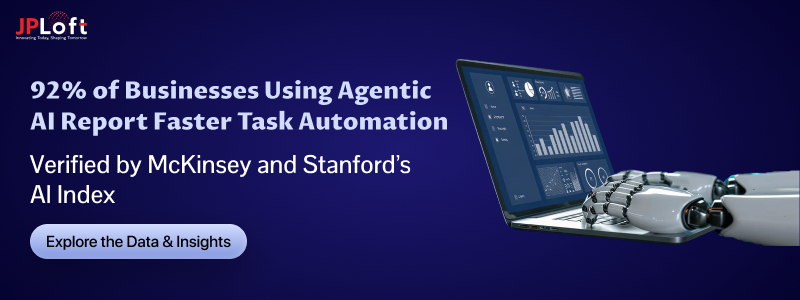
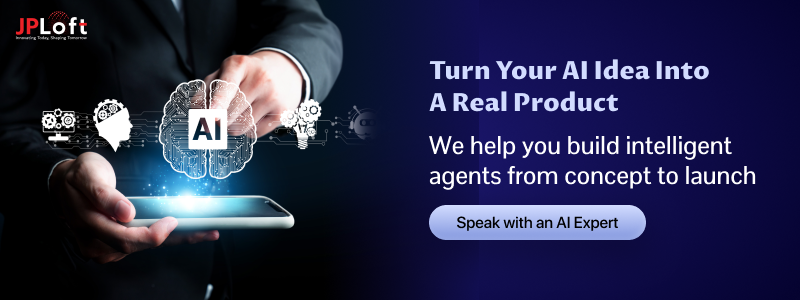

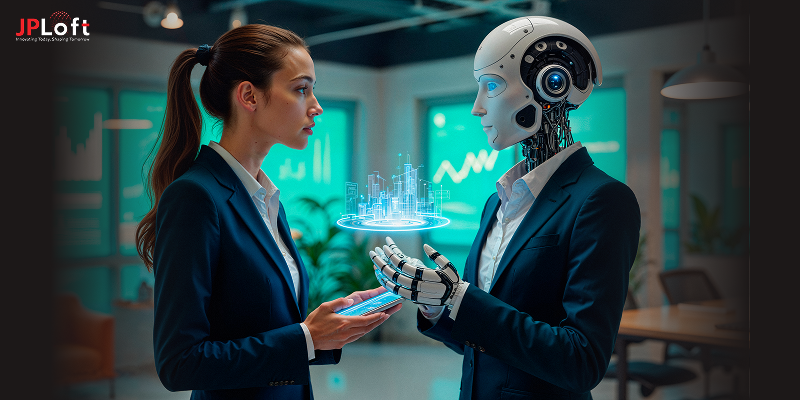
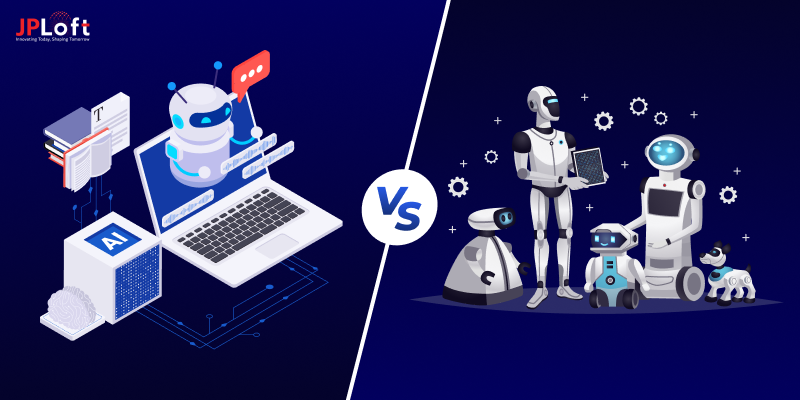
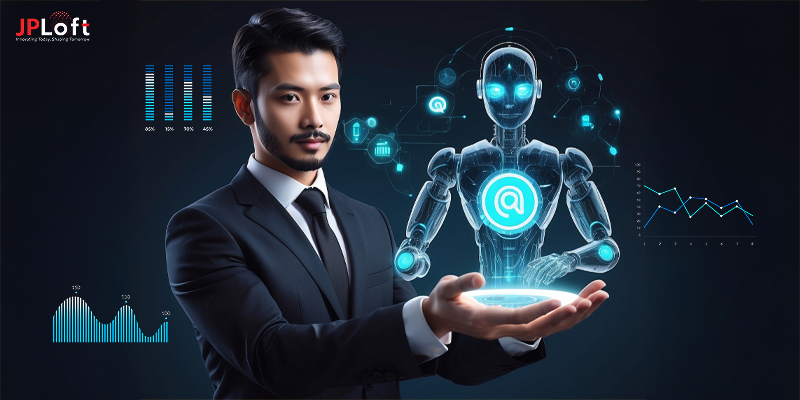


Share this blog